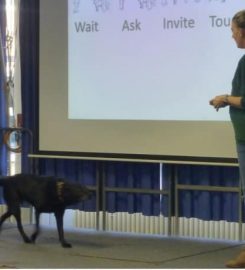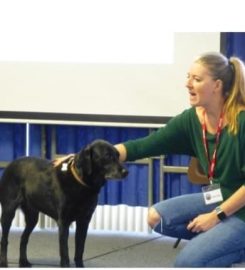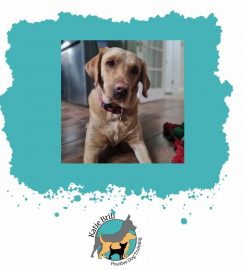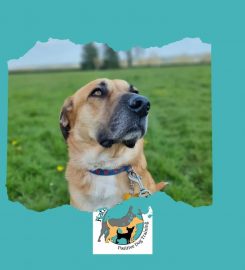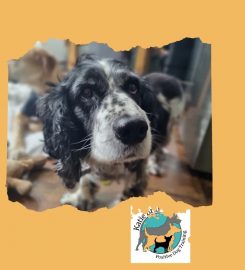About Katie Brill – Positive Dog Training
Katie Brill Positive Dog Training
Surrey based Katie Brill PDT specialises in Pet behaviour consultations and assessments in addition to home boarding and pet care services.
Hi, I’m Katie..
… and I love all things dogs!
I live in Tadworth with my husband, son and our 2 dogs Logan and Nala (who you can see below).
How my journey into dog behaviour began..
I started my career at Battersea Dogs and Cats Home, where I worked as a Rehomer and Puppy Behaviour Assessor. During this time I quickly discovered my passion for animal behaviour and how it was a direct link into animals arriving into the home. This was the beginning of my journey into studying canine and feline psychology and how, through truly understanding the needs of your pet, you can build a mutually strong and respectful relationship.
I thrive on understanding dog behaviour, and the way that they communicate with us. In order to continue learning, I attend relevant seminars where possible as I think its important to have a growth mindset with so much information available in the industry.
We offer the following services:…
- Comfort Care Breaks
- Dog Safety Talks
- Child and dog education sessions
- Cat Feeding
I am:
- Fully Certified Separation Anxiety Trainer
- Fully accredited with the ABTC through PACT
- A licensed “Be a Tree” presenter with Doggone Safe
- Accredited Trainer with Canine Assisted Learning
- First Aid Certified
- Fully insured with “Pet Business Insurance”
- 5 Star Licensed with Reigate and Banstead Borough Council
- References available upon request.
Training and Obedience
121 Adult Training (1yr +)
Owning a pet should be a rewarding and enjoyable experience for both owner and dog. It is important to build a strong relationship built on mutual trust and respect. Katie Brill PDT uses only Positive reward-based training to help enhance that relationship.
121 training sessions take place in your own home or a pre-agreed public area.
Working closely with you and your dog, we can help in the following areas:
- Barking
- Loose Lead walking
- Recall
- Jumping up and over-excitement
- Stealing objects
- Chewing
- Toilet training
- Commands – Sit, Stay, Leave, Drop, Down, Eye Contact
Discounts are available for multiple pre-booked sessions
One off session
Face to face – £70
Zoom – £50
Per Hour
2 – 3 pre booked sessions
5%
discount
4 + pre booked sessions
10%
discount
Start your puppy training early
It is important to start puppy training as soon as possible so that you meet your puppies development milestones
8-10 Weeks Old
Most new puppy owners bring their pup home around this time. During this phase, they should be learning the basics such as their name, good manners at home, starting to learn some basic commands, and some early socialization.
10-12 Weeks Old
You will be beginning to expand on your puppies commands, impulse control and socialisation
3-4 Months Old
As your pup is starting to grow up, you can start to work on more complex commands and training routines
4-6 Months Old
By this age, your puppy should start to work on their commands outside your home and in public spaces, as well as continue with their socialisation.
Pet Care Services
FAQs
info@katiebrillpdt.net



